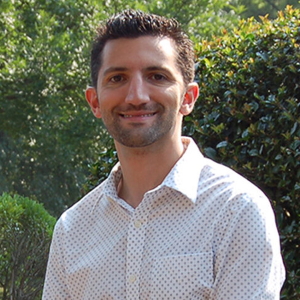About the Society
The Social & Affective Neuroscience Society (SANS) is committed to research investigating the neural basis of social and affective processes. The Society was founded in 2008 and now comprises over 400 members.
Leadership

Dominic Fareri
President

Jennifer Kubota
Vice-President

Ajay Satpute
Past President

Pin-Hao (Andy) Chen
Secretary-Treasurer

Caroline Charpentier
Director-at-Large

Oriel FeldmanHall
Director-at-Large

Eshin Jolly
Director-at-Large

Yuan Chang Leong
Director-at-Large

Meghan L. Meyer
Director-at-Large


Mark Thornton
Director-at-Large

Hongbo Yu
Director-at-Large
Society Committees
Awards Committee
Dominic Fareri, Adelphi University
Jennifer Kubota, University of Delaware
Ajay Satpute, Northeastern University
Equity, Diversity, Inclusion, and Justice Committee (EDIJ)
Chair: Damian Stanley, Adelphi University
Cat Camacho, Washington University in St. Louis
Emilie Caspar, Ghent University
Melanie Kos, Temple University
Nina Lauharatanahirun, Penn State University
Haroon Popal, Temple University
Niv Reggev, Ben-Gurion University of the Negev
Partnerships Committee
Chair: Dominic Fareri, Adelphi University
Eshin Jolly, University of San Diego
Ellen Christine Roche, University of Maryland
Ajay Satpute, Northeastern University
Social Media Committee
Co-Chairs:
Mark Thornton, Dartmouth University
Yuan Chang Leong, University of Chicago
Trainee Committee
Chair: Hongbo Yu, University of California, Santa Barbara
Elisa Baek, University of Southern California
Cat Camacho, Washington University in St. Louis
Shanny Foo, Montreal Neurological Institute
Kathryn McNaughton, University of Maryland
Nikki A. Puccetti, The Ohio State University
Shawn A. Rhoads, Icahn School of Medicine at Mount Sinai
Code of Conduct
As a scientific community, SANS aims to provide a supportive space for scientific dialogue. We believe that scientific progress depends on the free exchange of ideas in an environment in which all participants are treated equitably and with respect. To this end, we are committed to fostering a safe and supportive community in which all scientists are able to contribute fully regardless of age, gender, race, ethnicity, national origin, religion, gender identity or expression, sexual orientation, disability or any other applicable basis proscribed by law. Harassment of any form has no place in a healthy scientific enterprise. We expect all our members as well as other attendees at SANS- organized events to behave in ways that promote the supportive and productive exchange of ideas. This code of conduct outlines the expectations of the society for all conference attendees and participants, including all members, speakers, vendors, media representatives, commentators, exhibitors, sponsors, and volunteers.
Expected Behavior
SANS expects event participants to communicate professionally and constructively, whether in person or over electronic media, handling dissent or disagreement with an open mind that is respectful towards alternate points of view. Likewise, when sharing information about the organization or any attendees, SANS expects participants to share responsibly and clearly distinguish individual opinion from fact.
Sexual Harassment and Other Forms of Harassment
SANS does not tolerate harassment in any form.
Sexual harassment refers to unwelcome sexual advances, requests for sexual favors, and other verbal or physical conduct of a sexual nature. Behavior and language that are welcome and acceptable to one person may be unwelcome and offensive to another. Consequently, individuals must use discretion to ensure that their words and actions communicate respect for others. This is especially important for those in positions of authority since individuals with lower rank or status may be reluctant to express their objections or discomfort regarding unwelcome behavior.
Sexual harassment does not refer to occasional compliments of a socially acceptable nature. It refers to behavior that is not welcome, is personally offensive, debilitates morale, and therefore, interferes with work effectiveness. The following are examples of behavior that, when unwelcome, may constitute sexual harassment: sexual flirtations, advances, or propositions; verbal comments or physical actions of a sexual nature; sexually degrading words used to describe an individual; a display of sexually suggestive objects or pictures; sexually explicit jokes; unnecessary touching.
Harassment on the basis of any other protected characteristic is also strictly prohibited. This conduct includes, but is not limited to the following: epithets, slurs, or negative stereotyping; threatening, intimidating, or hostile acts; denigrating jokes and display or circulation of written or graphic material that denigrates or shows hostility or aversion toward an individual or group.
What to Do
If you are being harassed, notice that someone else is being harassed, or have any other concerns about an individual’s conduct, please contact the event organizers and/or a member of the SANS executive committee. SANS strongly supports an individual’s interest in confidentiality and will handle all reports with sensitivity. Information related to a report of harassment will only be disclosed on a “need to know basis” for the purposes of investigating and resolving the report. If an individual requests anonymity, honoring that request may limit SANS ability to respond fully to the reported behavior. SANS will carefully consider whether it can honor an individual’s request for anonymity while still providing a safe and non-discriminatory environment for all.
Retaliation Is Prohibited
SANS will not tolerate any form of retaliation against persons who file a report or assist in any investigation of the report. Retaliation is a serious violation of the SANS code of conduct and, like harassment or discrimination itself, will be subject to serious consequences.
Consequences of Unacceptable Behavior
The event organizers and SANS leadership will determine the appropriate course of action in the case of a reported violation of this code of conduct. Possible actions include warning the offender, expulsion from the conference with no refund and/or banning the offender from future SANS events and activities. SANS reserves the right to notify an employer or home institution of a report of serious misconduct involving one of its employees, trainees, students, or members and will cooperate with any external investigation into such a report.
All participants are expected to observe these rules and behaviors in all SANS sponsored venues, including online and social events.
